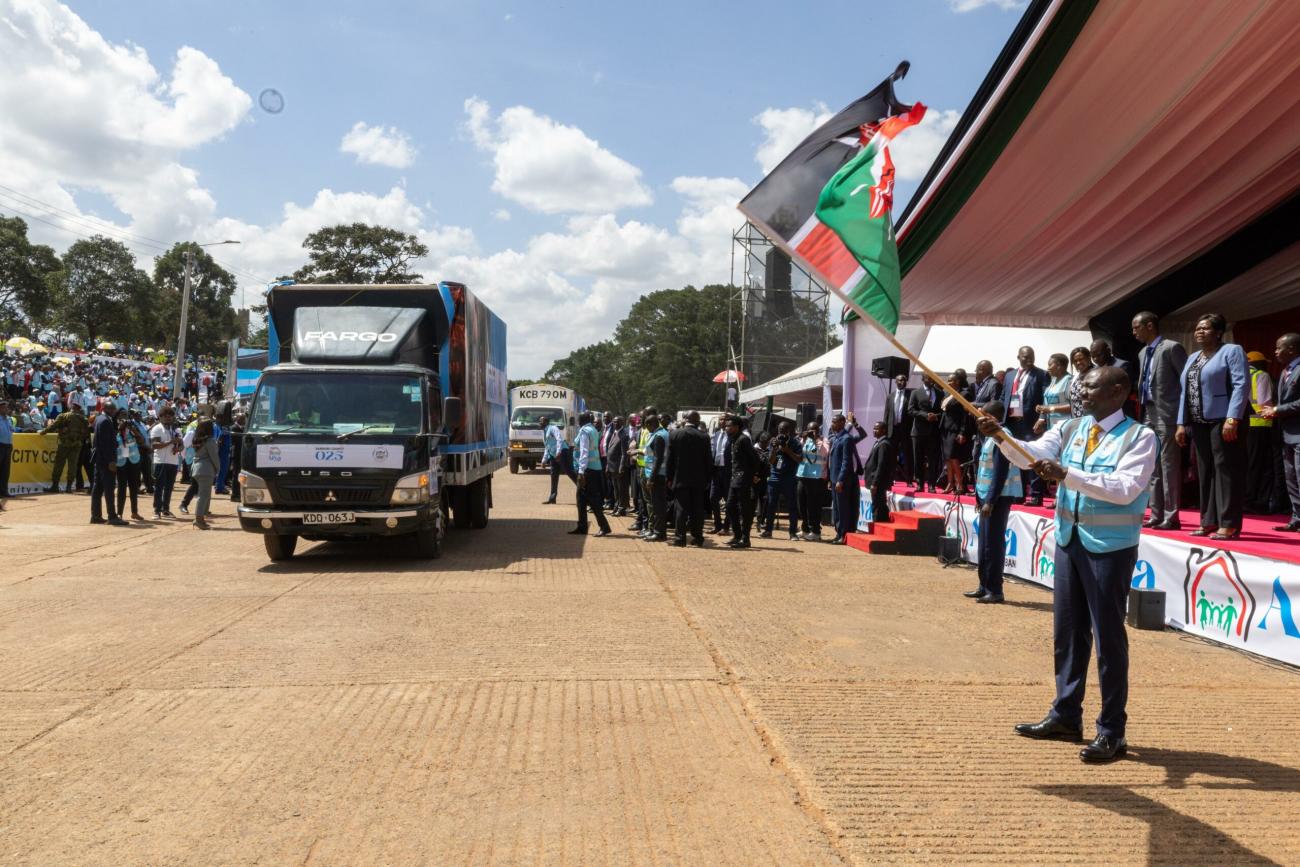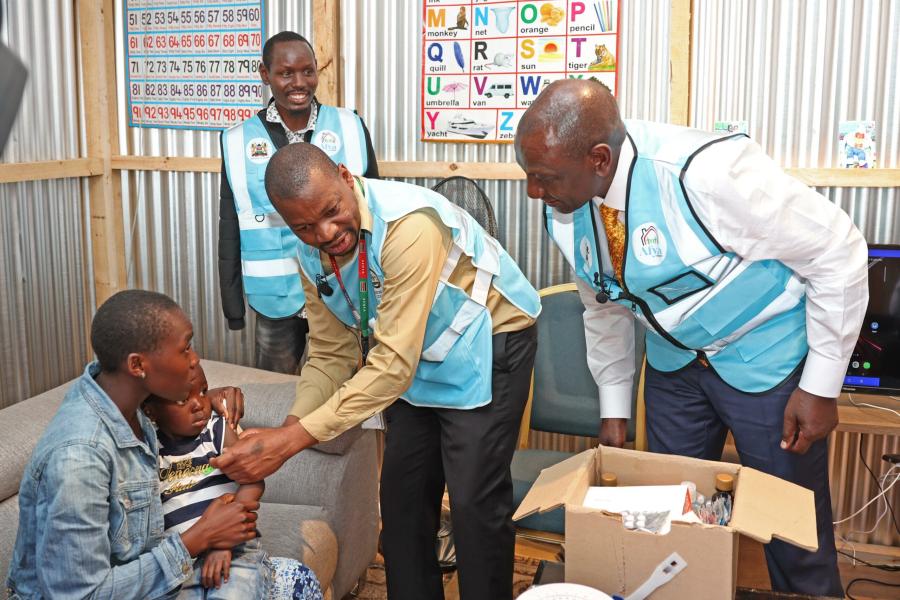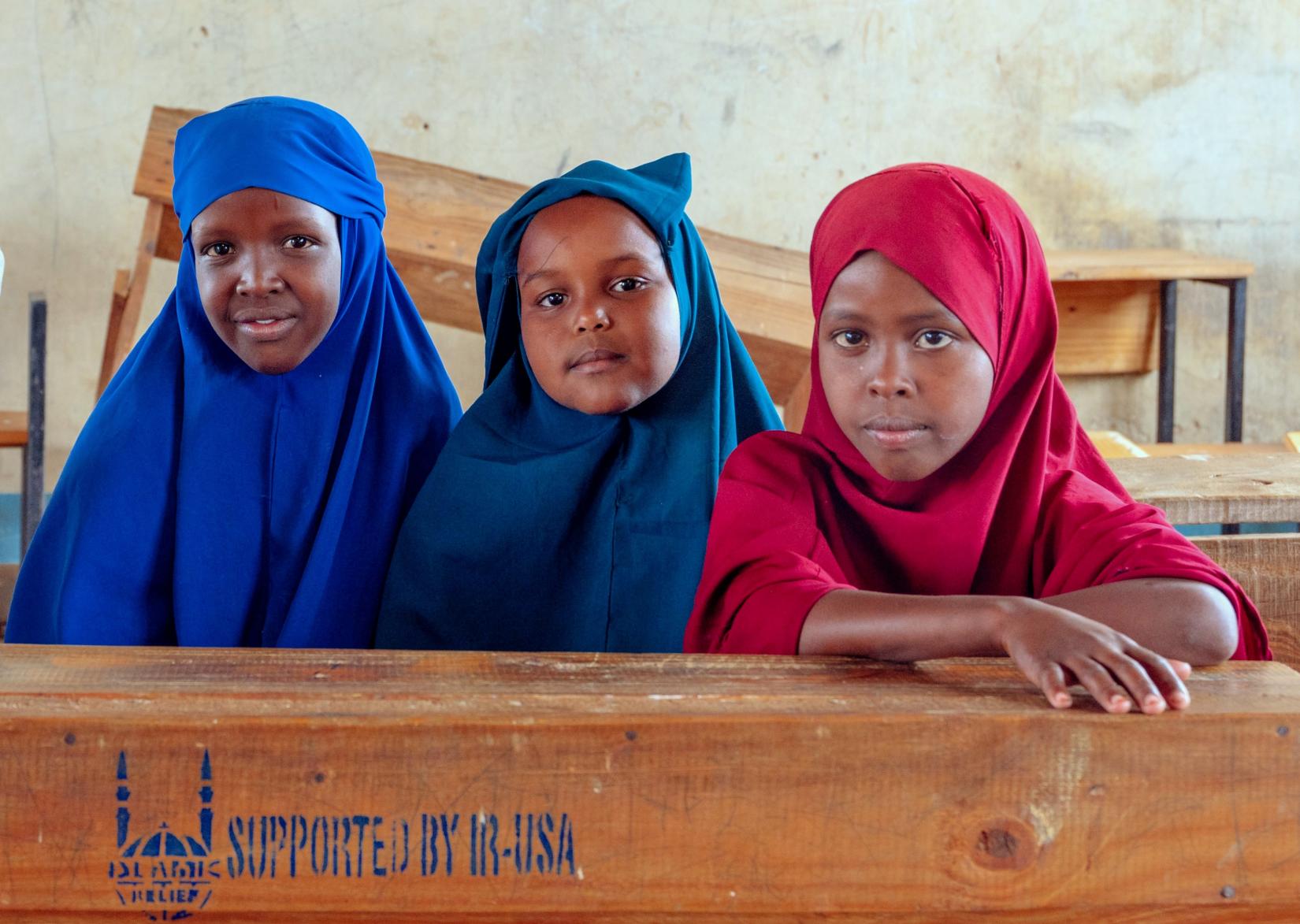Steady Gains Against Global Headwinds: Kenya’s Progress towards the Sustainable Development Goals

Kenya’s strides in healthcare, education, gender equality and climate action highlight progress toward the SDGs as noted in the 2024 VNR report..
Kenya continues to make significant strides in healthcare, education, gender equality and climate action, according to the recently concluded 2024 Voluntary National Review (VNR) report on progress towards the Sustainable Development Goals (SDGs), supported by the United Nations Kenya. As one of the 36 countries that participated in the 2024 VNR process at the UN’s High-Level Political Forum (HLPF) in New York in July, Kenya’s progress in these critical areas has been significant, even as the country—and the world—faces daunting challenges.
The 2024 VNR report highlights Kenya’s achievements. But it also powerfully reminds us that the journey towards sustainable development is far from over. The HLPF reinforced this point at the global level in its ministerial declaration, acknowledging that persistent global crises continue to derail the world’s progress towards the SDGs and emphasising the urgency of addressing these challenges head-on.
Healthcare Advancing: Moving the Needle on SDG 3
Kenya’s healthcare sector has seen significant improvements, particularly in reducing maternal and child mortality rates—a critical focus under SDG 3 on “Good Health and Well-being”. The VNR report highlights that maternal mortality has decreased significantly, thanks in part to improved access to antenatal care, skilled birth attendance and emergency obstetric services. Child mortality rates have also declined, supported by expanded immunisation programmes, improved nutrition and increased access to clean water and sanitation.
Kenya’s Government's focus on primary healthcare has been critical in these achievements. The recruitment and deployment of community health promoters have brought essential health services closer to people, especially in rural and marginalised areas. These health workers play a crucial role in preventive care, health education and the early detection and management of diseases, contributing significantly to the overall improvements in public health.
Principal Secretary of the State Department for Economic Planning, James Muhati, remarked, "The strides we have made in healthcare reflect our commitment to improving the quality of life for all Kenyans. However, as the report shows, continued investment in our health systems is essential to ensure that every Kenyan has access to the care they need. This is not just a health issue but a cornerstone of our development agenda."
The report also cautions that to fully achieve the targets set under SDG 3, there needs to be continued investment in healthcare infrastructure, particularly in underserved regions, and more efforts to address emerging health threats, such as non-communicable diseases and the ongoing impacts of the COVID-19 pandemic.

Quality Education: Sustaining Momentum
Kenya’s education sector has improved tremendously over the years due to ambitious reforms to professional teacher development, a competency-based curriculum (CBC) and management practices at the local level. Public spending on education has increased in absolute terms and as a percentage of overall spending, that at 16% although it is still below the global aspirations of the “Incheon Declaration”, which benchmarks 20% as the minimum needed. Impressive achievements had been made in primary education that approached universal levels by 2021, but were then negatively impacted by the COVID pandemic, slipping back to just over three-quarters by 2022. Kenya also still suffers from considerable regional disparities across all education outcomes. For example, most of the 47 counties exceed 12 expected years of school – but very low outcomes are concentrated in a few counties in the ASAL counties with expected years of school as low as 6.5 years. Amongst components of a response, Kenya’s VNR underlines the pivotal importance of school feeding programmes in the ASAL counties to increase years of schooling and support the government’s effort towards the attainment of Universal Primary Education and Education for All.
Gender Equality: Building on Progress
Under SDG 5 on gender equality, Kenya has made significant strides, particularly in reducing gender-based violence and harmful practices such as female genital mutilation (FGM). Legislative reforms and community engagement have played a crucial role in these successes. The VNR report notes that laws such as the Prohibition of Female Genital Mutilation Act, combined with advocacy and education efforts, have led to a reduction in these practices.
Additionally, though slower than desirable (or constitutionally mandated) Kenya has seen a gradual increase in the representation of women in leadership positions across government, business and civil society. Policies aimed at promoting gender equality and ensuring women’s participation in decision-making processes have been central to this progress. Initiatives like gender-responsive budgeting and the establishment of gender desks in police stations to handle cases of gender-based violence have further supported these efforts.
However, the report also notes that gender disparities persist, particularly in rural areas where traditional norms and economic barriers continue to limit women's access to education, healthcare and economic opportunities. Addressing these challenges will require sustained efforts to change societal attitudes, improve access to resources and strengthen the enforcement of gender-related laws and policies.
Climate Action: Leading the Way on Renewable Energy
Kenya’s approach to climate action (SDG 13) is marked by a commitment to reducing greenhouse gas emissions and promoting renewable energy. The VNR report outlines Kenya’s efforts in this area, noting that renewable energy now makes up a significant portion of the country’s energy mix.
UN Resident Coordinator in Kenya, Dr. Stephen Jackson, praised these efforts, noting, "Kenya’s progress in areas like renewable energy, where up to 93% of the country's electricity is generated from renewable sources, is both impressive and innovative. This achievement is not just a significant step forward for Kenya but also sets an impressive example for global efforts to tackle the global climate emergency.”
By harnessing clean energy, Kenya is reducing its carbon footprint and building resilience against climate change, all while providing sustainable energy solutions that can drive economic growth and development. “To sustain and accelerate these positive trends, continued and increased support—both from within Kenya and from the global community—is essential,” states Dr. Jackson, adding, “This is a crucial moment where intensified efforts can help bridge the gap between current achievements and the ambitious goals set for 2030.”
The HLPF ministerial declaration echoed these concerns, recognising that "climate change is one of the greatest challenges of our time" and calling for accelerated action. "The international community must urgently summon the commitment and investments needed to achieve the Sustainable Development Goals (SDGs) by the 2030 deadline," stated UN Deputy Secretary-General Amina Mohammed, highlighting the importance of international cooperation in addressing climate change.
Strengthening Partnerships: Collaboration for Sustainable Development
Kenya’s progress on SDG 17, which is anchored on partnerships, highlights the importance of collaboration in achieving sustainable development. The VNR report credits the success of Kenya’s SDG initiatives to the strong multi-stakeholder partnerships involving government agencies, civil society, the private sector and international organizations.
"Kenya is committed to strengthening the SDGs’ institutional frameworks at the national and sub-national level, while mobilizing the requisite partnerships and resources to support and accelerate the implementation of the SDGs," noted Prof. Njuguna Ndung’u, Cabinet Secretary for the National Treasury and Economic Planning. This underscores the need for continued international support and cooperation to overcome these challenges and sustain progress.
The HLPF’s ministerial declaration further emphasised the role of partnerships, calling for "a renewed impetus and accelerated actions to achieve the Sustainable Development Goals" and recognising that international cooperation and multilateralism are key to overcoming global challenges.

Local Engagement: Counties Leading the Way
Kenya is also a flagship for local monitoring of progress towards Agenda 2030 and the SDGs. The 2024 Voluntary National Review (VNR) process saw the active participation of 17 out of the country's 47 counties. These counties took a significant step by preparing their respective Voluntary Local Reviews (VLRs), which are detailed reports assessing progress on the Sustainable Development Goals (SDGs) at the local level. The counties that participated in this process include Kakamega, Vihiga, Elgeyo Marakwet, Bungoma, Kajiado, Narok, Taita Taveta, Homa Bay, West Pokot, Mombasa, Nyeri, Embu, Makueni, Baringo, Kilifi, Busia and Wajir.
These Voluntary Local Reviews demonstrate the county governments’ commitment to aligning with national and global SDG efforts. By participating in this review process, these counties not only contributed valuable localised data and insights but also highlighted the unique challenges and successes they face in the implementation of the SDGs. This effort is an important part of Kenya’s broader strategy to ensure that sustainable development is pursued in an inclusive and comprehensive manner, reaching every part of the country. Through these reviews, the counties have provided a clearer picture of their progress, which will help in shaping future policies and interventions to accelerate the achievement of the SDGs across Kenya.
A Balanced Perspective: Achievements and Challenges
While Kenya’s progress on several SDGs is commendable, the VNR report and the HLPF ministerial declaration both remind us that significant challenges remain. The call to "intensify our efforts" is not just about accelerating progress, but also about addressing the persistent gaps that threaten to undermine the gains made so far.
While there have been notable successes, the journey ahead requires addressing persistent challenges with the same determination and commitment. CS Njuguna aptly remarks, “The findings and recommendations outlined in this report demonstrate the need to intensify our efforts as Kenya continues to chart its course towards a more prosperous, inclusive, and sustainable future.”
As the world moves towards the 2030 deadline, Kenya’s experience highlights the need for collective action—both within the country and globally—to ensure that progress is inclusive and enduring. The path forward will demand continuous innovation, resilience, and cooperation to achieve a more sustainable and equitable future for all.


















